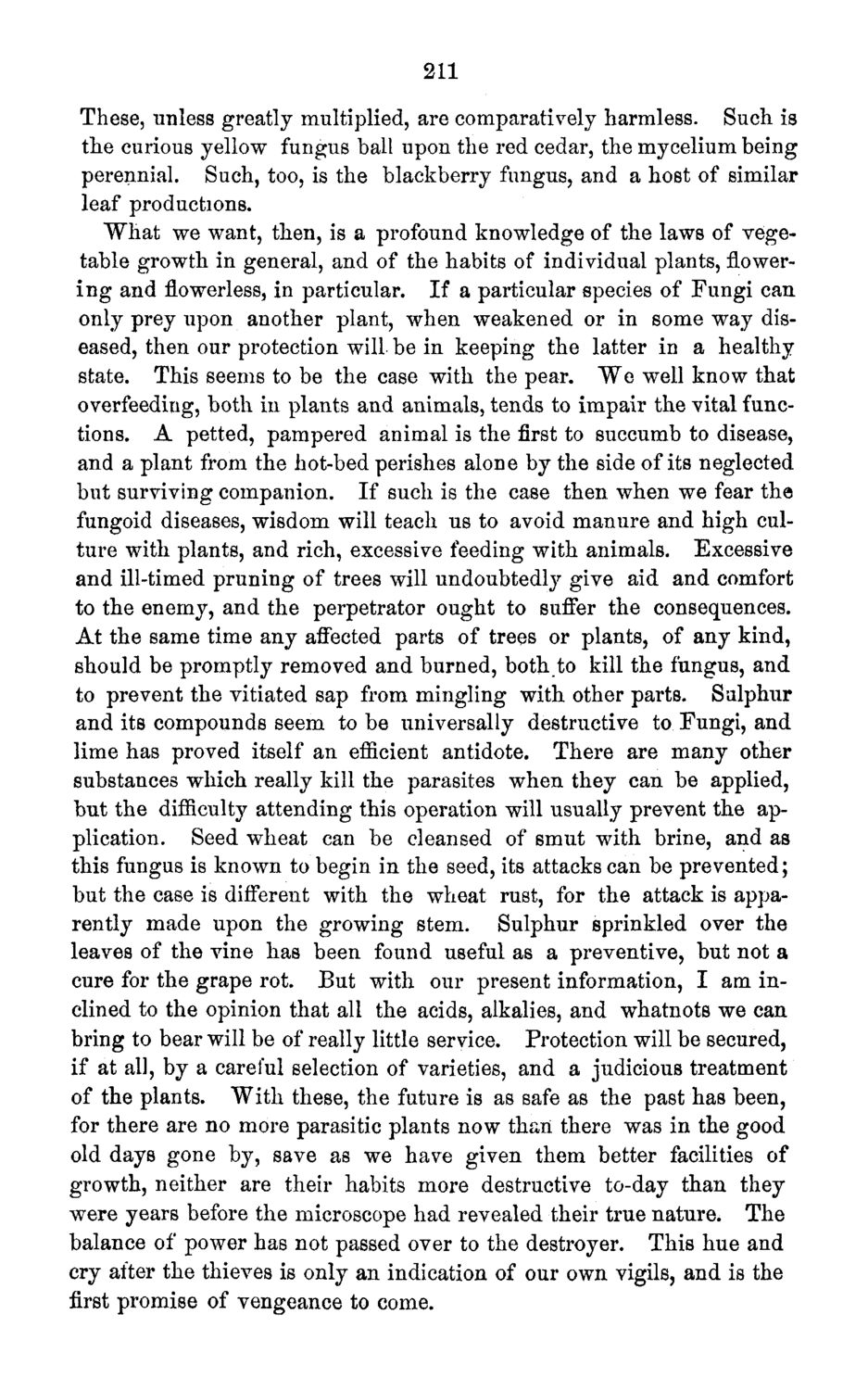| |
| |
Caption: Board of Trustees Minutes - 1871
This is a reduced-resolution page image for fast online browsing.

EXTRACTED TEXT FROM PAGE:
211 These, unless greatly multiplied, are comparatively harmless. Such is the curious yellow fungus ball upon the red cedar, the mycelium being perennial. Such, too, is the blackberry fungus, and a host of similar leaf productions. What we want, then, is a profound knowledge of the laws of vegetable growth in general, and of the habits of individual plants, flowering and flowerless, in particular. If a particular species of Fungi can only prey upon another plant, when weakened or in some way diseased, then our protection will be in keeping the latter in a healthy state. This seems to be the case with the pear. W e well know that overfeeding, both in plants and animals, tends to impair the vital functions. A petted, pampered animal is the first to succumb to disease, and a plant from the hot-bed perishes alone by the side of its neglected but surviving companion. If such is the case then when we fear the fungoid diseases, wisdom will teach us to avoid manure and high culture with plants, and rich, excessive feeding with animals. Excessive and ill-timed pruning of trees will undoubtedly give aid and comfort to the enemy, and the perpetrator ought to suffer the consequences. At the same time any affected parts of trees or plants, of any kind, should be promptly removed and burned, both to kill the fungus, and to prevent the vitiated sap from mingling with other parts. Sulphur and its compounds seem to be universally destructive to Fungi, and lime has proved itself an efficient antidote. There are many other substances which really kill the parasites when they can be applied, but the difficulty attending this operation will usually prevent the application. Seed wheat can be cleansed of smut with brine, and as this fungus is known to begin in the seed, its attacks can be prevented; but the case is different with the wheat rust, for the attack is apparently made upon the growing stem. Sulphur sprinkled over the leaves of the vine has been found useful as a preventive, but not a cure for the grape rot. But with our present information, I am inclined to the opinion that all the acids, alkalies, and whatnots we can bring to bear will be of really little service. Protection will be secured, if at all, by a careful selection of varieties, and a judicious treatment of the plants. With these, the future is as safe as the past has been, for there are no more parasitic plants now than there was in the good old days gone by, save as we have given them better facilities of growth, neither are their habits more destructive to-day than they were years before the microscope had revealed their true nature. The balance of power has not passed over to the destroyer. This hue and cry after the thieves is only an indication of our own vigils, and is the first promise of vengeance to come.
| |